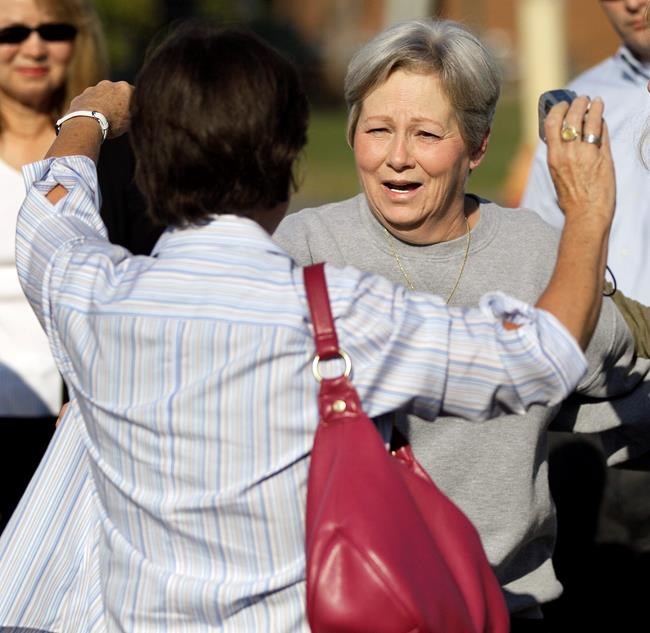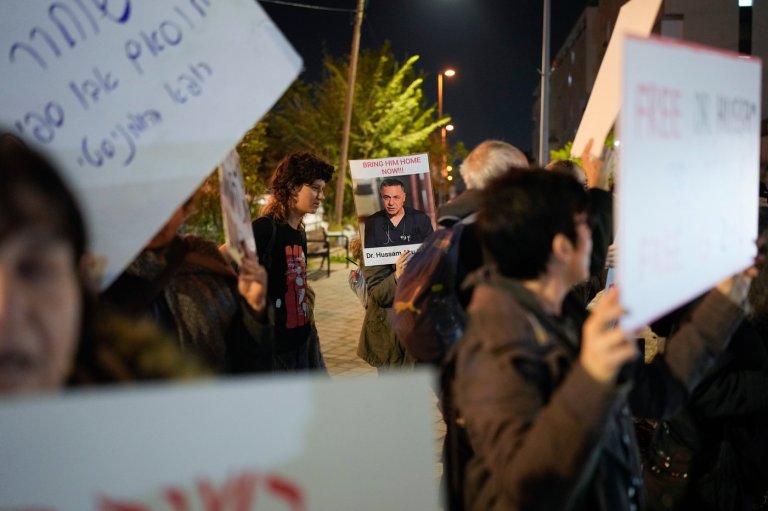
Friends say woman freed from death row led bittersweet life
NASHVILLE – When Gaile Owens left the Tennessee Prison for Women in 2011, after more than two decades on death row, her life seemed a textbook example of redemption and hope.
Sentenced to death for hiring a hit man to murder her husband in 1985, Owens had turned her life around, reconciled with her oldest son and received clemency.
Yet the years after her release were filled with complications and setbacks.
She died suddenly just before Thanksgiving, leaving her many friends in shock. They will gather Saturday to remember her.
“I hope people recognize all that she did,” said Becki Tumlin, a friend and former co-worker at Healing Housing, a non-profit that helps women recovering from addiction. “She wasn’t perfect. None of us are. But she definitely impacted the lives of a lot of people in a positive way, and I am forever grateful for her.”
Imprisoned for 26 years, Owens worked hard, studied the Bible and made an impression on prison volunteers. Many prominent Nashvillians rallied to support her, as did her older son Stephen Owens, who said he was led by God to forgive his mother and wrote a book about their reconciliation, “Set Free.”
In the eight years after her release, Owens was considered an example of all a person could accomplish if given the chance. She looked good and exuded confidence while giving back to society through a series of jobs in social service nonprofits. She was a loving friend to many. But Owens also let people down. She did her best to hide her problems, and that sometimes led to bad situations, friends said.
“She was very social and really wanted to make a difference,” said Malinda Davenport-Crisp, a friend and onetime employer. “She’s kind of a tragic figure to me. She had such a powerful story. … But I don’t think she got the services she needed.”
Fresh out of prison, Owens accepted a job at Thistle Farms, a non-profit that employs women who are victims of trafficking, prostitution and addiction.
It was a supportive, forgiving environment, said CEO Hal Cato. However, Owens wasn’t part of the residential program that provided other participants with services like counselling.
Owens was let go in 2016 after problems arose. Cato will only say it was no longer a good fit. Owens also had a falling out with her son around the same time, one he won’t talk about now.
Soon Davenport-Crisp tapped Owens to manage the Family Reconciliation Center’s guest house, where families stay for free while visiting their loved ones in prison.
Owens was great with the families, Davenport-Crisp said, but she fell and fractured her pelvis soon after starting the job.
No one came to help her. Her job provided her a place to live, but not a salary or insurance. She was too incapacitated to help the guests, some of whom ended up helping her instead, Davenport-Crisp said. Soon afterward, the guest house temporarily closed, and Owens had to leave.
Davenport-Crisp, a therapist, says she would have done things differently had she realized at the beginning just how precarious Owens’ position was, financially and emotionally.
“She was cast into the limelight with no time for healing,” Davenport-Crisp said. “I’ve been doing this work for 20 years, helping people who are getting out of prison. You can’t just walk into a normal life.”
Owens bounced back, finding a job with Healing Housing in mid-2017. Tumlin said it was perfect for Owens, who easily bonded with the clients.
“The women in that group are doing amazing things in life, and every one of them would tell you it’s because of her,” Tumlin said. She added, “I don’t think I’d be alive if it weren’t for her.”
Tumlin’s mother died of breast cancer when she was a teenager, and last spring Tumlin was diagnosed with the disease. Owens had recently lost the Healing Housing job in a restructuring, and she took on the role of Tumlin’s surrogate mother.
“She moved me in with her and took care of me until she passed away,” Tumlin said. “She took me to all my appointments and surgeries, she made me smoothies and lunches and made sure I had nutritious meals. She was just an angel on earth.”
But Tumlin added, “I do think she had a lot of regrets and obstacles she didn’t let people know about. She was a very giving person, but I think the more she did for others, the more she didn’t have to deal with what was going on inside of her.”
Owens died Nov. 27 after suddenly falling ill while dog sitting for a friend, according to a police report. A cause of death has not yet been released.
Before her sentence was commuted, Owens wrote a letter to then-Gov. Phil Bredesen in 2009, detailing her regret for the pain she caused with her crime.
“I have heard that time heals everything, but I beg to differ, there are some things that no amount of time or no degree of remorse will ever heal,” she wrote. “The choices I made in my life presents an example of a heart and life that will never be free of the sorrow that engulfs me on a daily basis. Time will never heal the pain in my life.”
Join the Conversation!
Want to share your thoughts, add context, or connect with others in your community?
You must be logged in to post a comment.


















